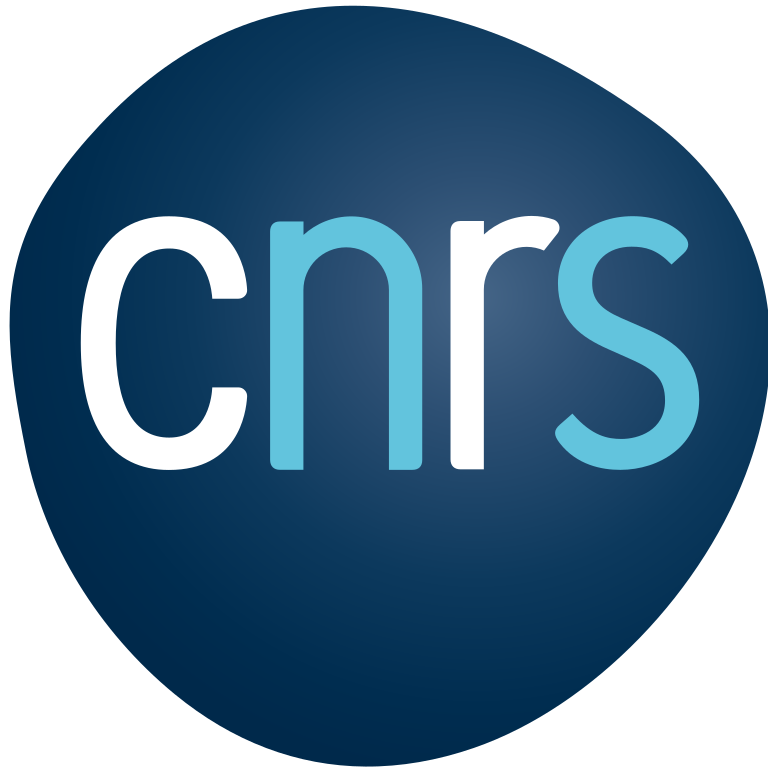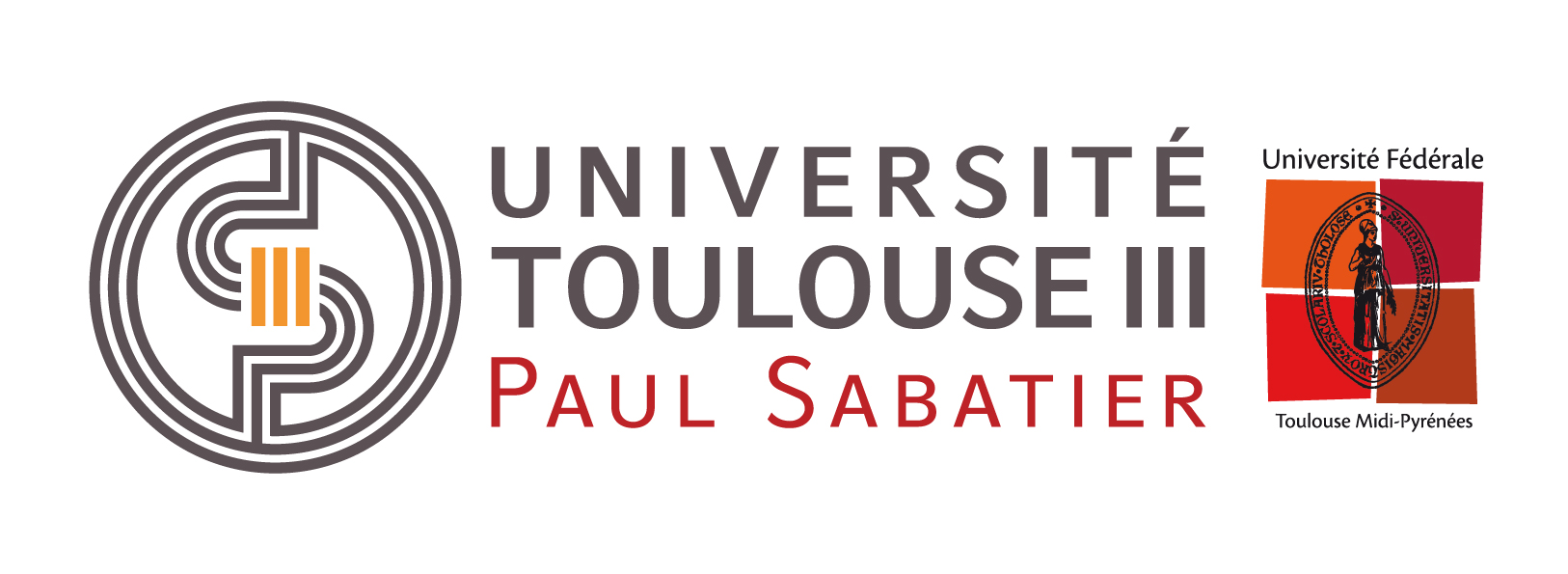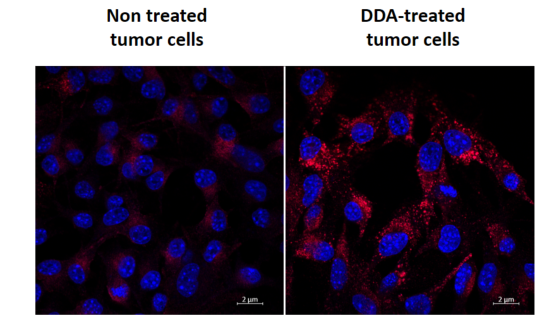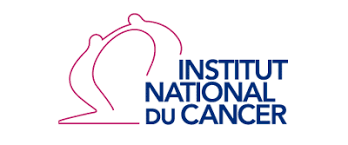Dendrogenin A reprograms tumor cells to secrete exosomes which activate the immune system against cancer
LBPA
BMP
Cancer
Cholesterol
Dendrogenin A
Differentiation
Exosomes
Nuclear receptor
Sandrine Silvente-Poirot – Team INOV : Cholesterol metabolism and therapeutic innovations
Tumour cells are characterized by having lost their differentiation state. They constitutively secrete small extracellular vesicles (sEV) called exosomes when they come from late endosomes. Dendrogenin A (DDA), a natural cholesterol-derived antitumor molecule discovered in the team, is a ligand of the nuclear receptors LXR. Here, we have shown that DDA differentiates tumor cells by acting on the LXRβ. This results in an increased production of sEV which include exosomes (named DDA-exosomes). DDA-exosomes were enriched in several proteins and lipids such as differentiation antigens, “eat-me” signals, lipidated LC3 and the endosomal phospholipid BMP, which stimulates dendritic cell maturation and a Th1 T lymphocyte polarization. Moreover, DDA-exosomes inhibited the growth of tumors in vivo compared to control conditions. This study reveals that the targeting of LXRβ with DDA may be a novel way to reprogram tumor cells and exosomes to stimulate immunity against cancer.
The results obtained in this study open very important perspectives for the use of this molecule in the clinic since we will be able to identify the patients who will respond to DDA, due to the presence of the LXRβ receptor in the tumor, but also for the identification of immunogenic compounds within exosomes produced by DDA. Dendrogenin A could eventually be used as an immunotherapy target in oncology.
Discover the published article
J Extracell Vesicles. 2022 Apr;11(4):e12211.doi: 10.1002/jev2.12211.
Targeting the liver X receptor with dendrogenin A differentiates tumour cells to secrete immunogenic exosome-enriched vesicles
Michel Record, Mehdi Attia, Kevin Carayon, Laly Pucheu, Julio Bunay, Régis Soulès, Silia Ayadi, Bruno Payré, Laure Perrin-Cocon, Florence Bourgailh, Antonin Lamazière, Vincent Lotteau, Marc Poirot, Sandrine Silvente-Poirot, Philippe de Medina
Collaborations and acknowledgements
Externals collaborations :
Laure Perrin-Cocon, Vincent Lotteau : VIRal Infection, Metabolism and Immunity, CIRI, Centre International de Recherche en Infectiologie, Univ Lyon, Inserm, U1111, Université Claude Bernard Lyon 1, CNRS, UMR5308, ENS de Lyon, Lyon, France.
Florence Bourgailh, Bruno Payré : Centre de Microscopie Electronique Appliquée à la Biologie, Faculté de Médecine Rangueil, Toulouse, France.
Antonin Lamazière : Sorbonne Université, INSERM, Centre de Recherche Saint-Antoine, CRSA, AP-HP.SU, Hôpital Saint Antoine, Département de métabobolomique clinique, Paris, France.
Financing :
PLBio 12-130/Institut National Du Cancer
PLBio 20-160/Institut National du Cancer (INCA)
Fondation Toulouse Cancer Santé

Toulouse Cancer Research Center (Oncopole)
Toulouse – FR
Contact us
+33 5 82 74 15 75
Want to join
the CRCT team ?







